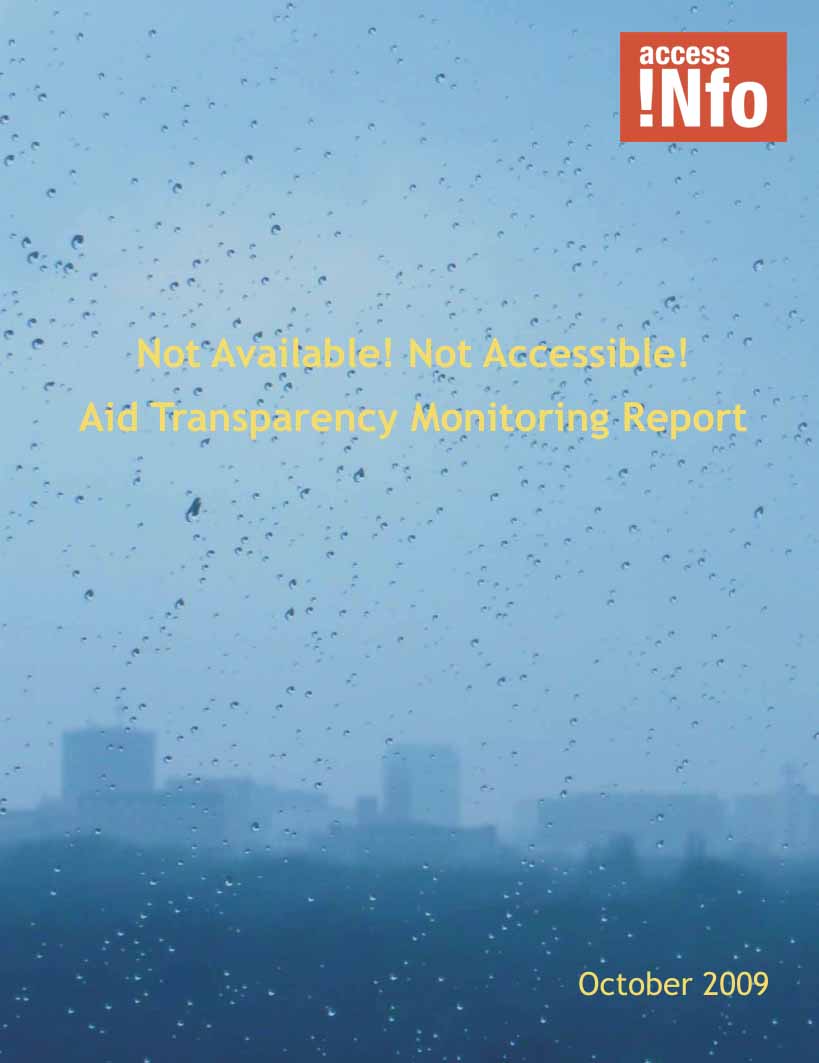Donor governments are failing to make available the information needed to prevent corruption in international aid projects and to permit taxpayers to evaluate the effectiveness of aid spending, according to a the report “Not Available! Not Accessible!” launched today by Access Info Europe.
The study found that only half (52%) of the basic information which should be published on aid agency is available. The evaluation of the websites of five leading aid agencies from Canada, France, Norway, Spain, and the UK, ranked Norway’s aid agency lowest with just 30% and found that the UK’s Department for International Development provided most information, achieving a score of 68%.
An absence of information about anti-corruption mechanisms was another key finding. The typical integrity mechanisms which donors promote in developing countries such as corruption risk assessments, gifts registers, assets declarations, and whistleblower protections were missing from the websites of the five donor agencies surveyed.
Serious gaps in decision-making and financial information made it impossible to get a clear picture of the aid flows to five recipient countries: Afghanistan, Kosovo, Mozambique, Peru, and Sierra Leone. This lack of information is preventing people in aid-dependent developing countries from taking ownership of their futures, the report concludes.
“Aid agencies need to think accountability and traceability before window-dressing their websites. We need to move beyond tokenistic transparency to give the public access to significantly better and more detailed information about aid flows,” commented Lydia Medland, the study’s lead researcher.
Not Available! Not Accessible! Report ![]()
Not Available! Not Accessible! Annex B ![]()
Responses
Following the publication of the report, Access Info Europe wrote directly to the five aid agencies which were investigated (click here to view the DfID example letter). In drawing their attention to the report, Access Info Europe has invited the aid agencies to share their views. To date, the following responses have been recieved from:

